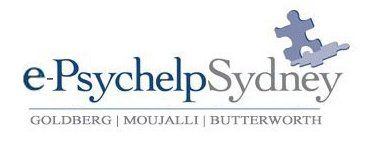Psychological assessments from Sydney’s expert team

At E-Psychelpsydney, our senior clinical psychologists carry out a wide range of professional psychological assessments. These are performed upon the request of individual clients, as well as other professionals, such as doctors, employers, solicitors and courts.
Depending on the assessment required, each will differ according to the subject matter, but all will be conducted with the utmost professionalism and confidentiality.
Our psychological assessments may look at issues involving:
- The rehabilitation of people with disabilities
- Employability
- Permanent impairment
- Liability
- Capacity to work, parent, or stand trial, etc.
Looking at both cognitive and emotional functions, our psychological assessments provide an overview of the person concerned at a particular point in time (e.g. post-injury).
Criminal assessment for prosecution or defence
Family and children's court assessments
In child protection, custody, fostering, access or alleged child abuse cases, we can assess all parties over two visits at our practice or at their home. This process involves both clinical interviews as well as specialised psychological testing for everyone involved, with the reports used to aid the court’s eventual decisions. Video and audio taping of children’s interviews can also be provided in matters of child sexual assault.
Specialised dyadic developmental therapy can improve parenting capacity and the quality of the child/parent attachment and bond.
Compensable injury assessments
These impartial and objective assessments are available for plaintiffs, defendants or insurer liability, and may be requested by any number of interested parties. These include insurers, lawyers and court requests, victims of crime tribunal, WorkCover, health, social security, legal aid and other agencies and employers.
Personal injury and third party reports evaluate the psychological impact of the injury, including pain, trauma, and stress assessments as well as vocational and neurocognitive impairment. Reports specify whole person impairment, DSM-5 diagnosis and prognosis.
Specialised neurocognitive assessments
Educational assessments
These are often requested by teachers or parents to determine what’s causing any causing learning or behavioural problems in children, identifying any mental, emotional and/or social factors. Recommendations are also offered on how to best deal with these issues based on the test results.
Dynamic Assessment of Learning Potential (DALP) can show that IQ can be increased even with severe disability.



